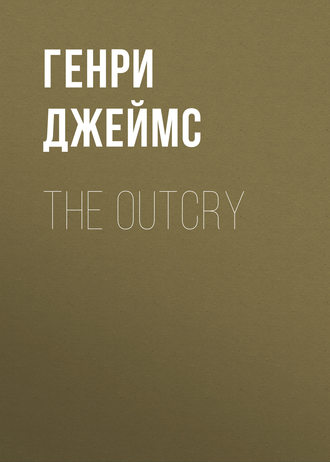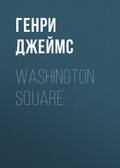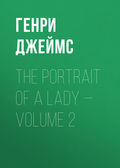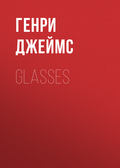
Генри Джеймс
The Outcry
Lady Sandgate appeared now in due—that is in the most happily adjusted—splendour; she had changed her dress for something smarter and more appropriate to the entertainment of Princes, “Tea will be downstairs,” she said. “But you’re alone?”
“I’ve just parted,” her friend replied, “with Grace and Mr. Crimble.”
“‘Parted’ with them?”—the ambiguity struck her.
“Well, they’ve gone out together to flaunt their monstrous connection!”
“You speak,” she laughed, “as if it were too gross—I They’re surely coming back?”
“Back to you, if you like—but not to me.”
“Ah, what are you and I,” she tenderly argued, “but one and the same quantity? And though you may not as yet absolutely rejoice in—well, whatever they’re doing,” she cheerfully added, “you’ll get beautifully used to it.”
“That’s just what I’m afraid of—what such horrid matters make of one!”
“At the worst then, you see”—she maintained her optimism—“the recipient of royal attentions!”
“Oh,” said her companion, whom his honour seemed to leave comparatively cold, “it’s simply as if the gracious Personage were coming to condole!”
Impatient of the lapse of time, in any case, she assured herself again of the hour. “Well, if he only does come!”
“John—the wretch!” Lord Theign returned—“will take care of that: he has nailed him and will bring him.”
“What was it then,” his friend found occasion in the particular tone of this reference to demand, “what was it that, when you sent him off, John spoke of you in Bond Street as specifically intending?”
Oh he saw it now all lucidly—if not rather luridly—and thereby the more tragically. “He described me in his nasty rage as consistently—well, heroic!”
“His rage”—she pieced it sympathetically out—“at your destroying his cherished credit with Bender?”
Lord Theign was more and more possessed of this view of the manner of it. “I had come between him and some profit that he doesn’t confess to, but that made him viciously and vindictively serve me up there, as he caught the chance, to the Prince—and the People!”
She cast about, in her intimate interest, as for some closer conception of it. “By saying that you had remarked here that you offered the People the picture—?”
“As a sacrifice—yes!—to morbid, though respectable scruples.” To which he sharply added, as if struck with her easy grasp of the scene: “But I hope you’ve nothing to call a memory for any such extravagance?”
Lady Sandgate waited—then boldly took her line. “None whatever! You had reacted against Bender—but you hadn’t gone so far as that!”
He had it now all vividly before him. “I had reacted—like a gentleman; but it didn’t thereby follow that I acted—or spoke—like a demagogue; and my mind’s a complete blank on the subject of my having done so.”
“So that there only flushes through your conscience,” she suggested, “the fact that he has forced your hand?”
Fevered with the sore sense of it his lordship wiped his brow. “He has played me, for spite, his damned impertinent trick!”
She found but after a minute—for it wasn’t easy—the right word, or the least wrong, for the situation. “Well, even if he did so diabolically commit you, you still don’t want—do you?—to back out?”
Resenting the suggestion, which restored all his nobler form, Lord Theign fairly drew himself up. “When did I ever in all my life back out?”
“Never, never in all your life of course!”—she dashed a bucketful at the flare. “And the picture after all–!”
“The picture after all”—he took her up in cold grim gallant despair—“has just been pronounced definitely priceless.” And then to meet her gaping ignorance: “By Mr. Crimble’s latest and apparently greatest adviser, who strongly stamps it a Mantovano and whose practical affidavit I now possess.”
Poor Lady Sandgate gaped but the more—she wondered and yearned. “Definitely priceless?”
“Definitely priceless.” After which he took from its place of lurking, considerately unfolding it, the goodly slip he had removed from her blotting-book. “Worth even more therefore than what Bender so blatantly offers.”
Her attention fell with interest, from the distance at which she stood, on this confirmatory document, her recognition of which was not immediate. “And is that the affidavit?”
“This is a cheque to your order, my lady, for ten thousand pounds.”
“Ten thousand?”—she echoed it with a shout.
“Drawn by some hand unknown,” he went on quietly.
“Unknown?”—again, in her muffled joy, she let it sound out.
“Which I found there at your desk a moment ago, and thought best, in your interest, to rescue from accident or neglect; even though it be, save for the single stroke of a name begun,” he wound up with his look like a playing searchlight, “unhappily unsigned.”
“Unsigned?”—the exhibition of her design, of her defeat, kept shaking her. “Then it isn’t good—?”
“It’s a Barmecide feast, my dear!”—he had still, her kind friend, his note of grimness and also his penetration of eye. “But who is it writes you colossal cheques?”
“And then leaves them lying about?” Her case was so bad that you would have seen how she felt she must do something—something quite splendid. She recovered herself, she faced the situation with all her bright bravery of expression and aspect; conscious, you might have guessed, that she had never more strikingly embodied, on such lines, the elegant, the beautiful and the true. “Why, who can it have been but poor Breckenridge too?”
“‘Breckenridge’—?” Lord Theign had his smart echoes. “What in the world does he owe you money for?”
It took her but an instant more—she performed the great repudiation quite as she might be prepared to sweep, in the Presence impending, her grandest curtsey. “Not, you sweet suspicious thing, for my great-grandmother!” And then as his glare didn’t fade: “Bender makes my life a burden—for the love of my precious Lawrence.”
“Which you’re weakly letting him grab?”—nothing could have been finer with this than Lord Theign’s reprobation unless it had been his surprise.
She shook her head as in bland compassion for such an idea. “It isn’t a payment, you goose—it’s a bribe! I’ve withstood him, these trying weeks, as a rock the tempest; but he wrote that and left it there, the fiend, to tempt me—to corrupt me!”
“Without putting his name?”—her companion again turned over the cheque.
She bethought herself, clearly with all her genius, as to this anomaly, and the light of reality broke. “He must have been interrupted in the artful act—he sprang up with such a bound at Mr. Crimble’s news. At once then—for his interest in it—he hurried off, leaving the cheque forgotten and unfinished.” She smiled more intensely, her eyes attached, as from fascination, to the morsel of paper still handled by her friend. “But of course on his next visit he’ll add his great signature.”
“The devil he will!”—and Lord Theign, with the highest spirit, tore the crisp token into several pieces, which fluttered, as worthless now as pure snowflakes, to the floor.
“Ay, ay, ay!”—it drew from her a wail of which the character, for its sharp inconsequence, was yet comic.
This renewed his stare at her. “Do you want to back out? I mean from your noble stand.”
As quickly, however, she had saved herself. “I’d rather do even what you’re doing—offer my treasure to the Thingumbob!”
He was touched by this even to sympathy. “Will you then join me in setting the example of a great donation–?”
“To the What-do-you-call-it?” she extravagantly smiled.
“I call it,” he said with dignity, “the ‘National Gallery.’”
She closed her eyes as with a failure of breath. “Ah my dear friend—!”
“It would convince me,” he went on, insistent and persuasive.
“Of the sincerity of my affection?”—she drew nearer to him.
“It would comfort me”—he was satisfied with his own expression. Yet in a moment, when she had come all rustlingly and fragrantly close, “It would captivate me,” he handsomely added.
“It would captivate you?” It was for her, we should have seen, to be satisfied with his expression; and, with our more informed observation of all it was a question of her giving up, she would have struck us as subtly bargaining.
He gallantly amplified. “It would peculiarly—by which I mean it would so naturally—unite us!”
Well, that was all she wanted. “Then for a complete union with you—of fact as well as of fond fancy!” she smiled—“there’s nothing, even to my one ewe lamb, I’m not ready to surrender.”
“Ah, we don’t surrender,” he urged—“we enjoy!”
“Yes,” she understood: “with the glory of our grand gift thrown in.”
“We quite swagger,” he gravely observed—“though even swaggering would after this be dull without you.”
“Oh, I’ll swagger with you!” she cried as if it quite settled and made up for everything; and then impatiently, as she beheld Lord John, whom the door had burst open to admit: “The Prince?”
“The Prince!”—the young man launched it as a call to arms.
They had fallen apart on the irruption, the pair discovered, but she flashed straight at her lover: “Then we can swagger now!”
Lord Theign had reached the open door. “I meet him below.”
Demurring, debating, however, she stayed him a moment. “But oughtn’t I—in my own house?”
His lordship caught her meaning. “You mean he may think—?” But he as easily pronounced. “He shall think the Truth!” And with a kiss of his hand to her he was gone.
Lord John, who had gazed in some wonder at these demonstrations, was quickly about to follow, but she checked him with an authority she had never before used and which was clearly the next moment to prove irresistible. “Lord John, be so good as to stop.” Looking about at the condition of a room on the point of receiving so august a character, she observed on the floor the fragments of the torn cheque, to which she sharply pointed. “And please pick up that litter!”






